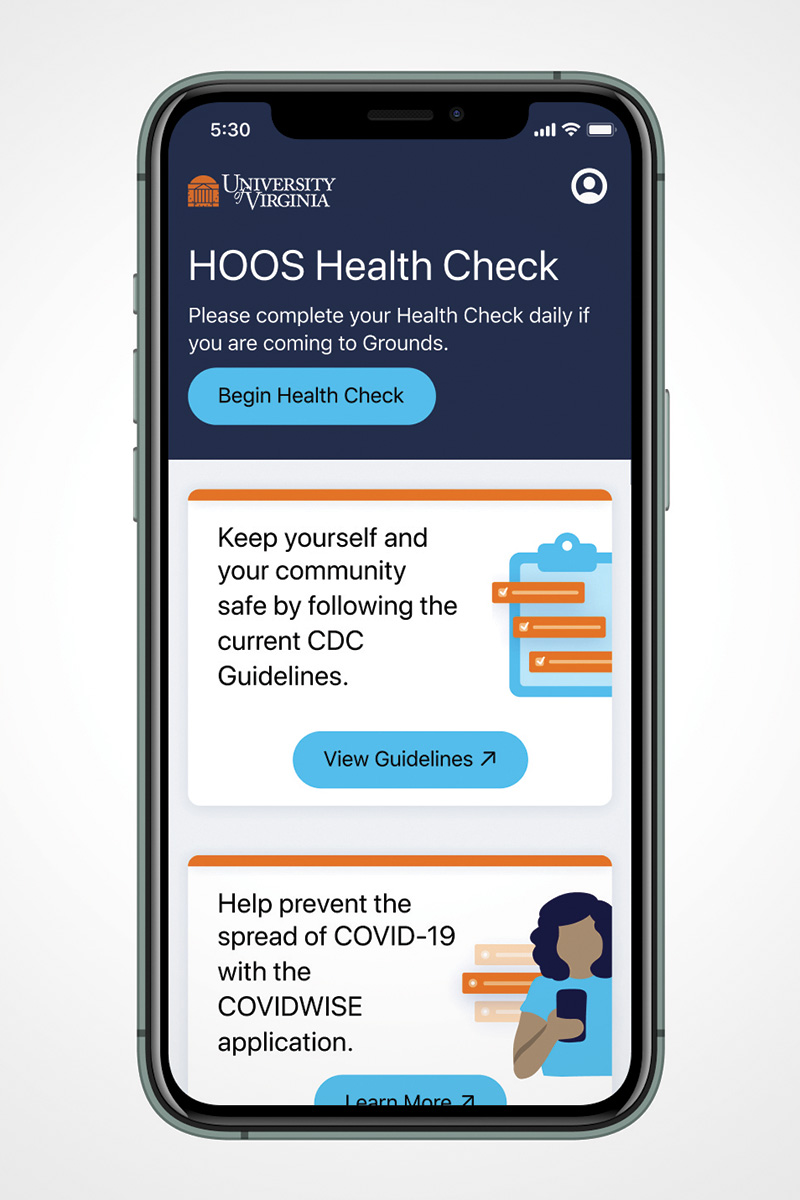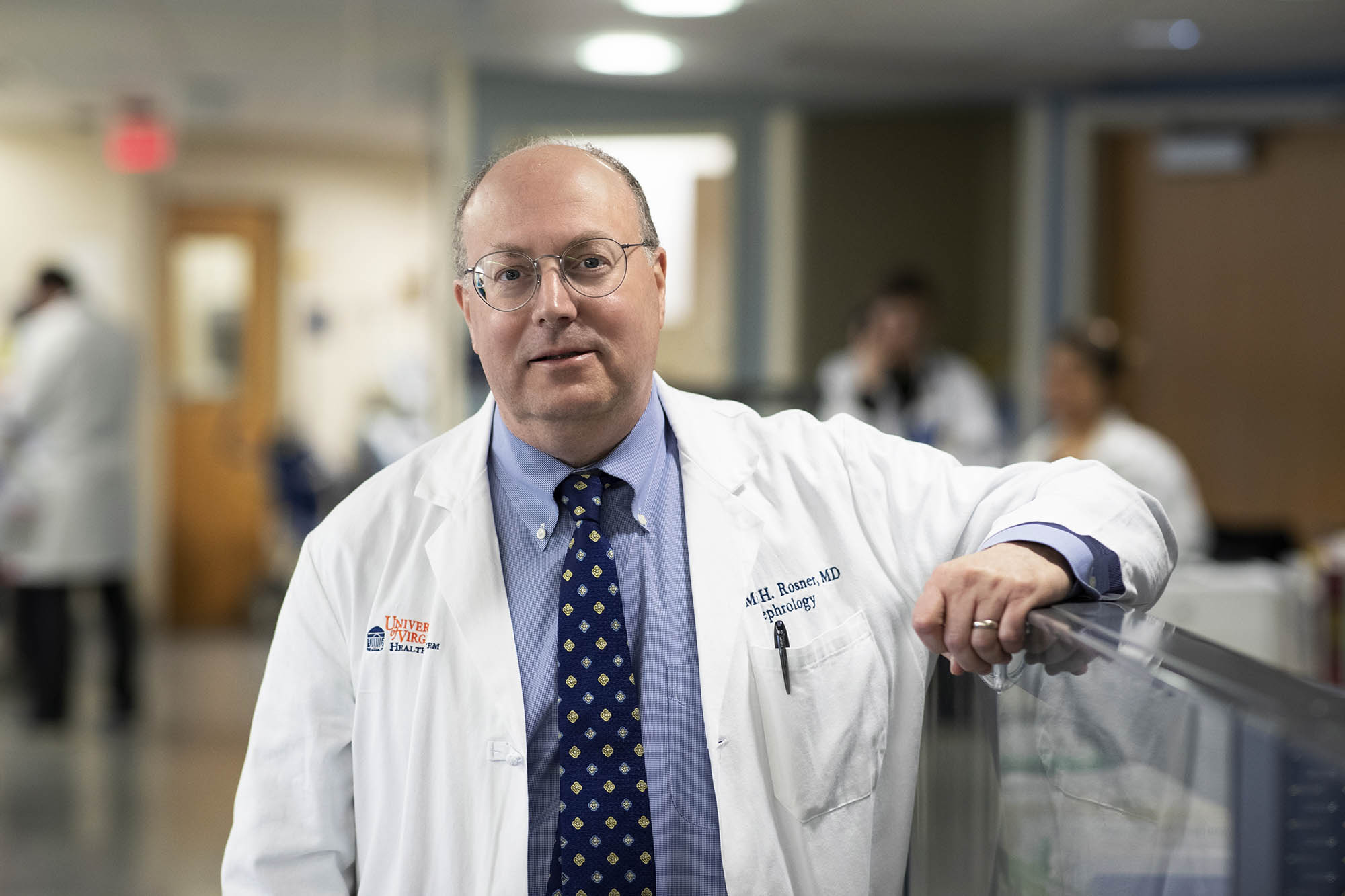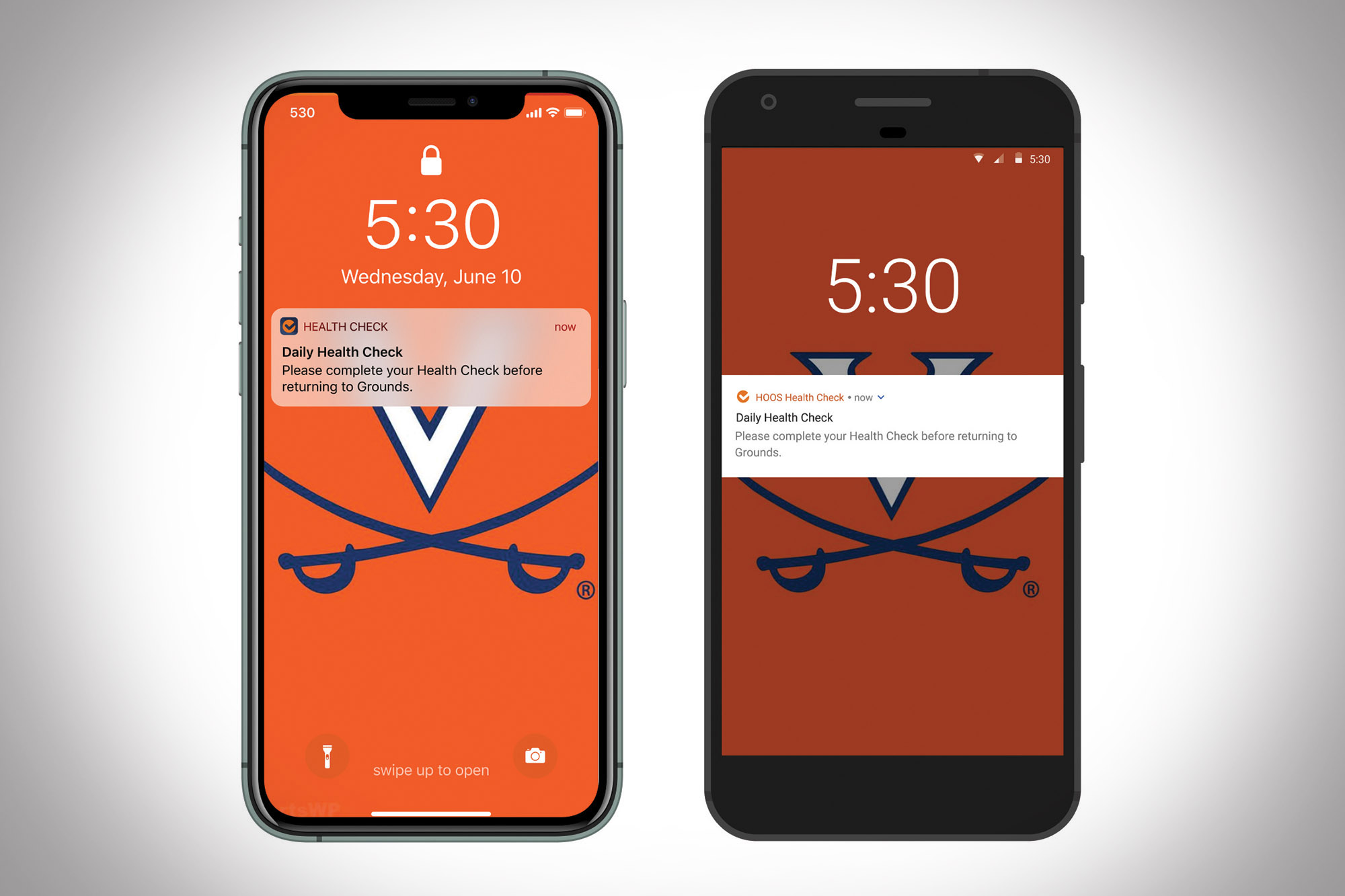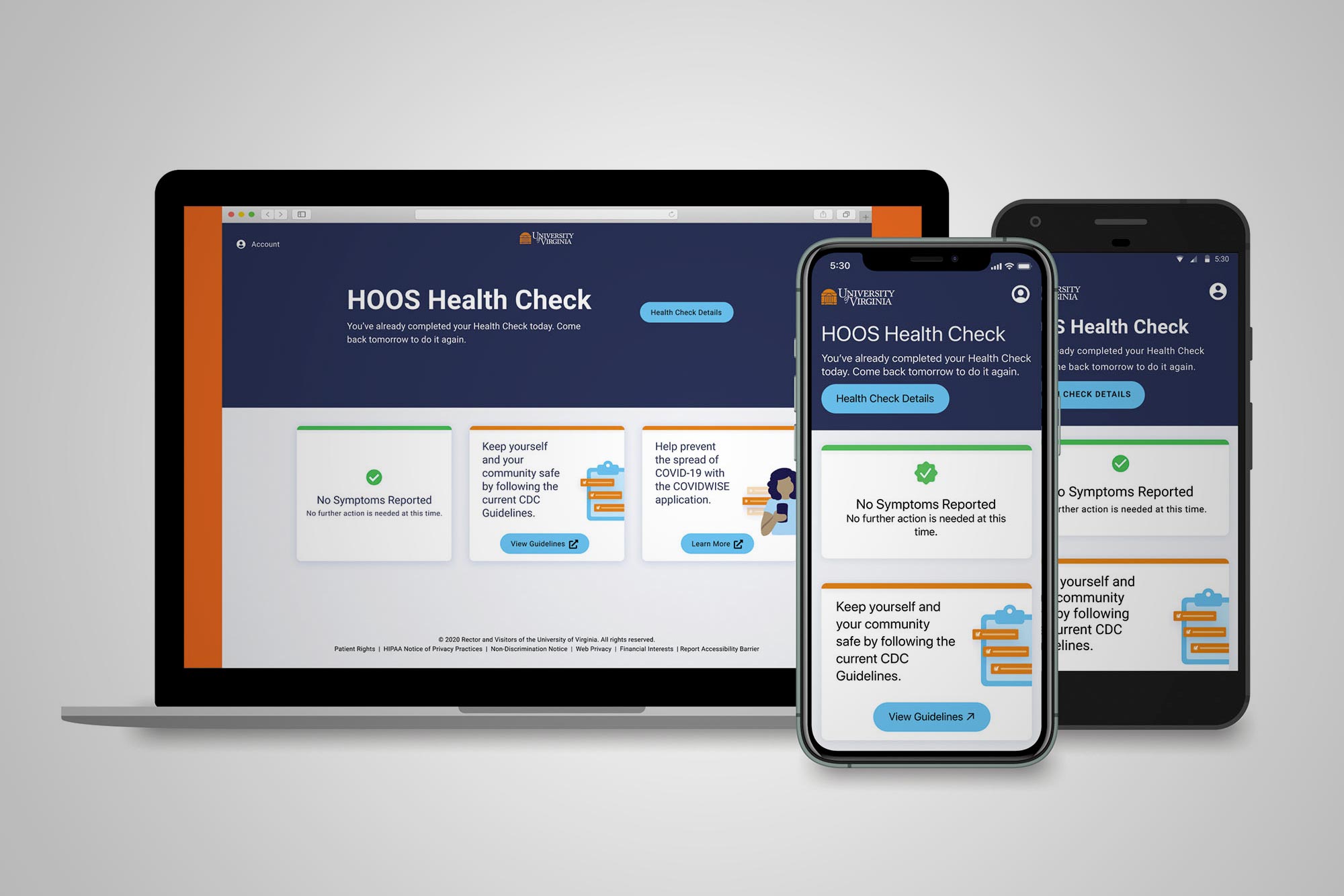A new, personal health assessment phone app and web-based program, “HOOS Health Check,” will become available Monday for use by the University of Virginia community. Students, faculty and staff members will be required to use the app to check for symptoms related to COVID-19 every day that they plan to be on Grounds.
HOOS Health Check is one of many components to the University’s plan to safely return students and employees to Grounds for the fall semester.
Employees and students who exhibit symptoms on any given day, such as a cough, fever or muscle aches, will need to contact Student Health and Wellness or Employee Health, depending on status, for instructions on how to proceed, such as possibly self-isolating or being tested for COVID-19.

Students, faculty and staff members will be required to use HOOS Health Check each day they plan to be on Grounds.
“HOOS Health Check is part of our overall strategy to control the spread of the virus in the UVA community,” said Dr. Mitch Rosner, the Henry B. Mulholland Professor of Medicine and chair of UVA’s Department of Medicine, who has provided expertise and guidance to the University’s leadership team during recent months. “Our goal is to promote personal responsibility to protect our community.”
A pan-University team developed HOOS Health Check as a user-friendly health assessment program designed to help raise awareness of personal health among members of the UVA community so they can take appropriate steps to care for themselves and prevent the spread of coronavirus. Team members from the Office of the Provost, Student Affairs, UVA Health, Human Resources and Information Technology Services all contributed to designing the program for ease of use, and for helping each member of the University community share the responsibility of protecting each other during the COVID-19 pandemic.
The University partnered with Charlottesville-based software developer WillowTree to produce the custom-designed app and website for HOOS Health Check. The company’s designers and engineers worked closely with UVA physicians, lab teams, data scientists and information technology experts.

Dr. Mitch Rosner, the Henry B. Mulholland Professor of Medicine and chair of UVA’s Department of Medicine, has helped guide University leadership during the pandemic. (Photo by Dan Addison, University Communications)
Beginning Monday, members of the University community will be able to download HOOS Health Check to their phones from the Apple App Store or Android Google Play Store, or they may access the HOOS Health Check website using a personal computer. For employees who do not have a smartphone or computer, a paper-based HOOS Health Check form will be available.
Any student or employee who does not intend to visit Grounds on a particular day will not need to complete the health check.

When students and employees visit HOOS Health Check each day before coming onto Grounds or heading to class or other activities, they will be presented with a checklist of several possible COVID-19 symptoms – cough, shortness of breath, difficulty breathing, fever, chills, muscle pain, sore throat, gastrointestinal problems, loss of smell or taste, congestion and runny nose.
They must indicate whether they are free of these symptoms or not. If they have no symptoms, they get a green light to proceed with their plans on Grounds. If they are experiencing any of the symptoms, then they cannot come to work or attend classes and must instead contact Student Health or Employee Health and report the symptoms. They should also notify their professor or supervisor if they need to miss class or work. A health care practitioner will then advise on further action, such as isolating at home or getting tested for COVID-19.

The app will help members of the UVA community stay safe during the COVID-19 pandemic.
“The goal is to keep everyone safe by identifying and isolating people who may be infectious,” Vice President and Chief information Office Virginia Evans said. “We are depending on everyone to be good citizens with a sense of shared responsibility to the University and to each other.”
HOOS Health Check can be used in conjunction with, or apart from, COVIDWISE, a new contact tracing app rolled out this week by the Virginia Department of Health. That app is designed to notify users if they have been in close contact with somebody who has tested positive for COVID-19. The HOOS Health Check app will include a link to download the COVIDWISE app, for users who are interested in using it. Data will not be shared between the apps.
Marsh Pattie, assistant vice president of student affairs, emphasized that the University will maintain confidentiality regarding app users’ personal information and health status.
“While compliance is important and the health check is required daily, our focus is on helping individuals monitor their own health, have quick access to important resources, and own their responsibility to help protect our community,” Pattie said. “Success depends on each of us to do our part.”
Blake Sirach, chief product officer at WillowTree and a UVA media studies and sociology alumnus, noted that adoption of mobile technology “is becoming central to every community’s adaptation to the COVID-19 pandemic.”
“A COVID-19 response plan that maximizes safety – without creating an undue technology burden on people – directly promotes the interest of global public health,” he said. “The fact that UVA has committed to building robust health check apps, focused on a fast, secure and user-friendly experience, demonstrates my alma mater’s forward-looking and innovative posture.”
Media Contact
Article Information
August 5, 2020
/content/uva-introduces-hoos-health-check-app-community-safety-during-pandemic

